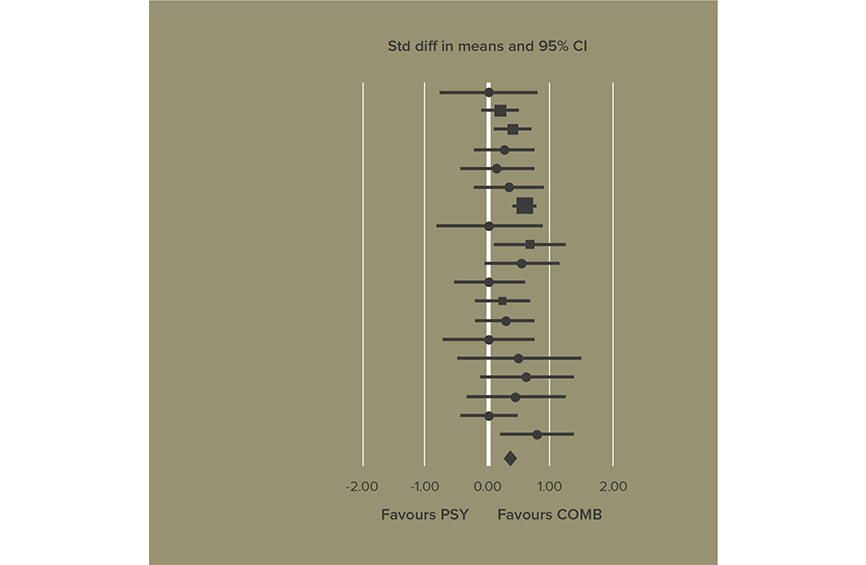
Adapted from Cuijpers P et al. 2009.5 Standardised difference in mean effect sizes and 95% CI of psychological treatment for depression compared to combined psychotherapy and pharmacotherapy.

Treating the diversity of depression
Depression is a clinically heterogeneous disorder, and as such can be treated through several approaches.1 A range of both pharmacological and psychological therapies make up today’s clinical repertoire of antidepressant treatments, while a number of alternative medicines, activities and techniques have also been claimed to offer some relief.2,3
National Institute for Health and Clinical Excellence (NICE) Clinical Guidance (CG90)
According to this guidance, it is recommended that patients with mild to moderate depressive symptoms should be offered either guided self-help, computerised cognitive behavioural therapy, a structured group physical activity programme, or a combination of these.4 However, for those patients who present with moderate or severe depression, a combination of both pharmacological intervention and a high-intensity psychological therapy should be prescribed.4
Depression is a clinically heterogeneous disorder, and as such can be treated through several approaches.1
The Evidence
This recommendation is supported by a recent meta-analysis comparing psychological therapy vs. a combination of both pharmacological and psychological treatment. After analysing 19 randomised studies involving over 1,800 patients with depression, it was found that, of the two therapeutic approaches, combination strategy was significantly more efficacious (p<0.001).5

Adapted from Cuijpers P et al. 2009.5 Standardised difference in mean effect sizes and 95% CI of psychological treatment for depression compared to combined psychotherapy and pharmacotherapy.
Treatment beyond medication
A number of alternative strategies have also been suggested to provide relief from depressive symptoms, including meditation, exercise, yoga, light therapy and St. John’s Wort.6–8 However, psychotherapy and pharmacolgical treatments remain the mainstay of clinical depression therapy.10